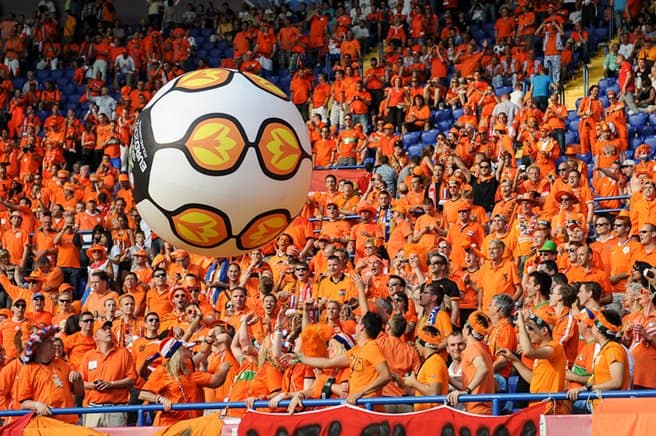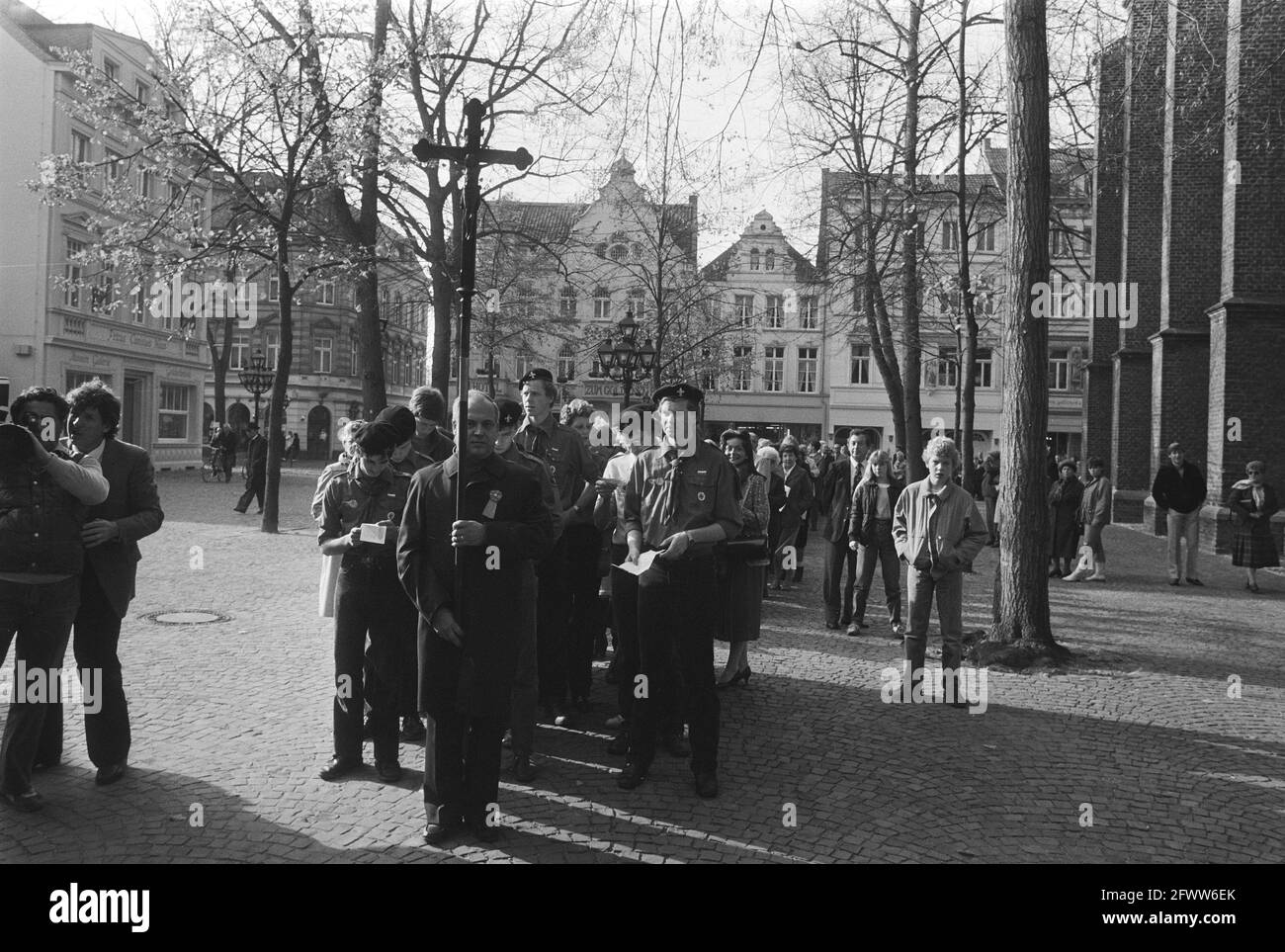“Football Temples of the Netherlands: A Pilgrimage for Passionate Fans
Related Articles Football Temples of the Netherlands: A Pilgrimage for Passionate Fans
Football Temples of the Netherlands: A Pilgrimage for Passionate Fans

The Netherlands, a land renowned for its tulips, windmills, and canals, also boasts a vibrant football culture that permeates every corner of the nation. From the Eredivisie’s high-octane matches to the historic clubs that have shaped the sport, the Dutch football landscape is steeped in tradition and passion. For any football enthusiast planning a trip to the Netherlands, a visit to one or more of its iconic stadiums is an absolute must. These aren’t just venues for matches; they are living monuments to the beautiful game, each with its unique story, atmosphere, and architectural charm.
This article delves into some of the most compelling football stadiums in the Netherlands, offering a glimpse into their history, atmosphere, and what makes them essential destinations for any football fan.
1. Johan Cruijff Arena (Amsterdam)
No discussion of Dutch football stadiums can begin without mentioning the Johan Cruijff Arena, the home of AFC Ajax. Formerly known as the Amsterdam Arena, it was renamed in 2018 to honor the legendary Johan Cruijff, arguably the greatest Dutch footballer of all time.
- History: Opened in 1996, the Johan Cruijff Arena was designed as a modern, multi-purpose stadium capable of hosting both football matches and concerts. It was one of the first stadiums in Europe to feature a retractable roof, allowing for events to take place regardless of the weather.
- Atmosphere: On match days, the Johan Cruijff Arena transforms into a cauldron of noise, with Ajax’s loyal supporters creating an electric atmosphere. The stadium’s steep stands ensure excellent views from every seat, and the passionate chanting and singing of the fans create an unforgettable experience.
- Unique Features: The stadium offers guided tours that provide insights into its history, architecture, and the inner workings of a modern football venue. Visitors can explore the dressing rooms, the players’ tunnel, and even walk onto the pitch. The Ajax Museum, located within the stadium, is a must-visit for any fan of the club, showcasing the team’s rich history and numerous trophies.
- Beyond Football: The Johan Cruijff Arena is also a popular venue for concerts, hosting some of the world’s biggest music acts. Its central location in Amsterdam makes it easily accessible by public transport.
2. De Kuip (Rotterdam)
De Kuip, officially known as Stadion Feijenoord, is the iconic home of Feyenoord Rotterdam. This stadium is revered for its historical significance and intense atmosphere.
- History: Opened in 1937, De Kuip has witnessed countless memorable moments in Dutch football history. It has hosted numerous European Cup finals, including the 1972 final where Feyenoord defeated Celtic to become the first Dutch club to win the competition.
- Atmosphere: De Kuip is renowned for its intimidating atmosphere, earning it the nickname "De Hel van Zuid" (The Hell of the South). The stadium’s steep stands and close proximity to the pitch create an intense and intimidating environment for visiting teams. The Feyenoord supporters, known for their unwavering loyalty and passion, are among the most vocal and dedicated in the Netherlands.
- Unique Features: The stadium’s architecture is classic and imposing, with its large, curved stands creating a sense of grandeur. Guided tours are available, offering insights into the stadium’s history and its significance to Feyenoord and Dutch football.
- Historical Significance: De Kuip is more than just a football stadium; it’s a symbol of Rotterdam’s resilience and pride. The stadium has survived bombings during World War II and has been a source of unity and inspiration for the city’s residents.

3. Philips Stadion (Eindhoven)
The Philips Stadion, home to PSV Eindhoven, is another iconic stadium with a rich history and a passionate fanbase.
- History: Opened in 1913, the Philips Stadion is one of the oldest football stadiums in the Netherlands. It has been renovated and expanded several times over the years, but it has retained its unique character and charm.
- Atmosphere: The Philips Stadion is known for its family-friendly atmosphere, making it a popular destination for fans of all ages. The PSV supporters are passionate and knowledgeable, creating a lively and supportive environment for the team.
- Unique Features: The stadium is located in the heart of Eindhoven, surrounded by shops, restaurants, and other attractions. The PSV Museum, located within the stadium, offers a fascinating look at the club’s history and its contributions to Dutch football.
- Technological Innovation: As the home of PSV, a club closely associated with the electronics giant Philips, the stadium has often been at the forefront of technological innovation. It has been used as a testing ground for new lighting, sound, and communication technologies.
4. GelreDome (Arnhem)
The GelreDome, home to Vitesse Arnhem, is a modern, multi-purpose stadium that offers a unique and comfortable matchday experience.
- History: Opened in 1998, the GelreDome was one of the first stadiums in Europe to feature a retractable pitch, allowing for a variety of events to be held at the venue.
- Atmosphere: The GelreDome offers a more relaxed and family-friendly atmosphere compared to some of the older, more traditional stadiums. The Vitesse supporters are passionate and dedicated, creating a lively and supportive environment for the team.
- Unique Features: The stadium’s retractable pitch allows for concerts, exhibitions, and other events to be held without damaging the playing surface. The stadium also features a sliding roof, which can be opened or closed depending on the weather.
- Multi-Purpose Venue: The GelreDome is not just a football stadium; it’s a versatile venue that hosts a wide range of events throughout the year. Its modern facilities and flexible design make it a popular choice for concerts, conferences, and exhibitions.
5. Abe Lenstra Stadion (Heerenveen)
The Abe Lenstra Stadion, home to SC Heerenveen, is a modern stadium that pays tribute to one of the club’s greatest players.
- History: Opened in 1994, the Abe Lenstra Stadion is named after the legendary Abe Lenstra, who is considered one of the greatest Dutch footballers of all time.
- Atmosphere: The stadium is known for its passionate and vocal supporters, who create a lively and intimidating atmosphere for visiting teams. The SC Heerenveen fans are fiercely loyal and proud of their club, and they make the Abe Lenstra Stadion a difficult place to play.
- Unique Features: The stadium’s design is modern and functional, with excellent views from every seat. The stadium also features a museum dedicated to the life and career of Abe Lenstra.
- Regional Pride: SC Heerenveen is a club that represents the Frisian region of the Netherlands, and the Abe Lenstra Stadion is a symbol of Frisian pride and identity.
6. Euroborg (Groningen)
The Euroborg, home to FC Groningen, is a modern stadium that has helped to revitalize the club and its fanbase.
- History: Opened in 2006, the Euroborg replaced FC Groningen’s old Oosterpark Stadion. The new stadium has helped to attract more fans and improve the club’s financial position.
- Atmosphere: The Euroborg is known for its passionate and vocal supporters, who create a lively and intimidating atmosphere for visiting teams. The FC Groningen fans are fiercely loyal and proud of their club, and they make the Euroborg a difficult place to play.
- Unique Features: The stadium is located next to a shopping mall and a cinema, making it a popular destination for fans before and after matches.
- Community Hub: The Euroborg is more than just a football stadium; it’s a community hub that brings people together. The stadium hosts a variety of events throughout the year, including concerts, conferences, and community festivals.
Tips for Visiting Dutch Football Stadiums
- Book Tickets in Advance: Tickets for popular matches can sell out quickly, so it’s always best to book in advance.
- Arrive Early: Arriving early will give you time to soak up the atmosphere and explore the stadium.
- Wear Club Colors: Wearing the colors of the home team is a great way to show your support and feel like part of the crowd.
- Learn Some Dutch Chants: Learning a few basic Dutch football chants will help you to join in the atmosphere and show your appreciation for the local culture.
- Respect the Local Culture: Be respectful of the local culture and customs. Avoid offensive language or behavior, and be mindful of the feelings of others.
Conclusion
Visiting a football stadium in the Netherlands is more than just attending a match; it’s an immersion into the heart and soul of Dutch football culture. From the historic De Kuip to the modern Johan Cruijff Arena, each stadium offers a unique experience that will leave a lasting impression on any football fan. So, whether you’re a die-hard supporter or a casual observer, be sure to include a visit to one or more of these iconic stadiums on your next trip to the Netherlands. You won’t be disappointed.

